| 1 x afterRenderComponent com_tags (2.44MB) (22.9%) | 57.80ms |
| 1 x afterRenderRawModule mod_tags_popular (Search) (19.48KB) (21.94%) | 55.39ms |
| 1 x afterRenderRawModule mod_articles_category (READ MORE...) (2.8KB) (18.62%) | 46.99ms |
| 1 x afterRender (535.37KB) (8.97%) | 22.63ms |
| 1 x afterInitialise (1.28MB) (5.46%) | 13.79ms |
| 1 x beforeRenderRawModule mod_custom (Chronic fatigue tied Alan to his bed but Q10 capsules saved him:) (244.28KB) (2.79%) | 7.04ms |
| 1 x beforeRenderRawModule mod_articles_category (READ MORE...) (423.86KB) (2.26%) | 5.70ms |
| 1 x afterRoute (826.27KB) (1.84%) | 4.65ms |
| 1 x afterRenderRawModule mod_menu (Main Menu - English) (186.95KB) (1.8%) | 4.55ms |
| 1 x afterRenderRawModule mod_finder () (128.59KB) (1.76%) | 4.44ms |
| 1 x afterRenderRawModule mod_custom () (22.61KB) (1.57%) | 3.96ms |
| 1 x afterRenderRawModule mod_menu (Main Menu - English) (6.3KB) (1.46%) | 3.68ms |
| 1 x afterRenderRawModule mod_languages (Sprogskift) (22.66KB) (1.36%) | 3.43ms |
| 1 x beforeRenderRawModule mod_menu (Main Menu - English) (25.14KB) (0.76%) | 1.92ms |
| 1 x afterDispatch (27.48KB) (0.75%) | 1.88ms |
| 1 x afterRenderRawModule mod_finder () (6.29KB) (0.73%) | 1.86ms |
| 1 x afterRenderRawModule mod_languages (Sprogskift Mobil) (3.89KB) (0.62%) | 1.55ms |
| 1 x beforeRenderModule mod_articles_category (READ MORE...) (20.82KB) (0.6%) | 1.52ms |
| 1 x afterLoad (455.89KB) (0.42%) | 1.07ms |
| 1 x After Access::preloadComponents (all components) (103.05KB) (0.37%) | 932μs |
| 1 x afterRenderRawModule mod_menu (Are you getting enough vitamins and minerals?) (22.39KB) (0.37%) | 928μs |
| 1 x Before Access::preloadComponents (all components) (50.9KB) (0.23%) | 572μs |
| 1 x afterRenderRawModule mod_menu (Did you know.....) (25.52KB) (0.15%) | 388μs |
| 1 x beforeRenderComponent com_tags (20.62KB) (0.14%) | 347μs |
| 1 x afterRenderRawModule mod_custom (BOOST YOUR IMMUNE DEFENSE) (3.8KB) (0.13%) | 323μs |
| 1 x afterRenderRawModule mod_menu (The key to increased well-being) (17.83KB) (0.12%) | 312μs |
| 1 x beforeRenderRawModule mod_custom () (8.66KB) (0.09%) | 216μs |
| 1 x afterRenderRawModule mod_custom () (904B) (0.08%) | 193μs |
| 1 x afterRenderModule mod_custom () (2.43KB) (0.07%) | 186μs |
| 1 x beforeRenderRawModule mod_custom () (6.62KB) (0.06%) | 164μs |
| 1 x beforeRenderRawModule mod_menu (Main Menu - English) (5.07KB) (0.06%) | 155μs |
| 1 x afterRenderRawModule mod_custom () (896B) (0.05%) | 127μs |
| 1 x beforeRenderRawModule mod_custom () (688B) (0.04%) | 102μs |
| 1 x afterRenderRawModule mod_custom (Get additionel and more detailed knowledge ) (1.55KB) (0.03%) | 74μs |
| 1 x afterRenderModule mod_custom (Chronic fatigue tied Alan to his bed but Q10 capsules saved him:) (1.3KB) (0.03%) | 69μs |
| 1 x afterRenderModule mod_articles_category (READ MORE...) (1.25KB) (0.03%) | 66μs |
| 1 x afterRenderModule mod_menu (Main Menu - English) (4.86KB) (0.03%) | 65μs |
| 1 x afterRenderModule mod_menu (Main Menu - English) (1.25KB) (0.03%) | 65μs |
| 1 x afterRenderModule mod_custom () (1.23KB) (0.03%) | 64μs |
| 1 x afterRenderModule mod_finder () (1.23KB) (0.02%) | 63μs |
| 1 x afterRenderRawModule mod_custom (Chronic fatigue tied Alan to his bed but Q10 capsules saved him:) (1.06KB) (0.02%) | 56μs |
| 1 x After Access::getAssetRules (id:8 name:com_content) (7.05KB) (0.02%) | 53μs |
| 1 x afterRenderModule mod_finder () (3.29KB) (0.02%) | 48μs |
| 1 x afterRenderModule mod_languages (Sprogskift Mobil) (1.27KB) (0.02%) | 44μs |
| 1 x beforeRenderRawModule mod_custom (Get additionel and more detailed knowledge ) (816B) (0.01%) | 37μs |
| 1 x Before Access::getAssetRules (id:8 name:com_content) (840B) (0.01%) | 37μs |
| 1 x afterRenderRawModule mod_custom (Useful Links) (1.02KB) (0.01%) | 35μs |
| 1 x beforeRenderRawModule mod_custom (BOOST YOUR IMMUNE DEFENSE) (6.45KB) (0.01%) | 34μs |
| 1 x afterRenderModule mod_custom () (2.71KB) (0.01%) | 32μs |
| 1 x afterRenderModule mod_custom (Cholesterol-lowering without side effects:) (1.28KB) (0.01%) | 29μs |
| 1 x afterRenderModule mod_custom (BOOST YOUR IMMUNE DEFENSE) (1.28KB) (0.01%) | 26μs |
| 1 x afterRenderModule mod_languages (Sprogskift) (5.31KB) (0.01%) | 26μs |
| 1 x afterRenderRawModule mod_custom (Overview of vitamins, minerals, and essential fatty acids) (960B) (0.01%) | 24μs |
| 1 x beforeRenderRawModule mod_languages (Sprogskift Mobil) (912B) (0.01%) | 24μs |
| 1 x afterRenderRawModule mod_custom (Cholesterol-lowering without side effects:) (1.06KB) (0.01%) | 23μs |
| 1 x beforeRenderRawModule mod_menu (The key to increased well-being) (736B) (0.01%) | 23μs |
| 1 x afterRenderModule mod_tags_popular (Search) (1.27KB) (0.01%) | 22μs |
| 1 x afterRenderModule mod_custom (Get additionel and more detailed knowledge ) (1.3KB) (0.01%) | 21μs |
| 1 x afterRenderModule mod_custom (Overview of vitamins, minerals, and essential fatty acids) (1.31KB) (0.01%) | 21μs |
| 1 x afterRenderModule mod_custom (Q10 goes by many names) (1.27KB) (0.01%) | 20μs |
| 1 x afterRenderModule mod_custom (Check this before you buy a Q10 product) (1.28KB) (0.01%) | 20μs |
| 1 x afterRenderModule mod_custom (Weight loss that works) (1.27KB) (0.01%) | 20μs |
| 1 x afterRenderModule mod_custom (Antiaging) (3.77KB) (0.01%) | 20μs |
| 1 x beforeRenderRawModule mod_languages (Sprogskift) (3.94KB) (0.01%) | 20μs |
| 1 x afterRenderModule mod_menu (Are you getting enough vitamins and minerals?) (1.3KB) (0.01%) | 20μs |
| 1 x afterRenderModule mod_menu (The key to increased well-being) (1.28KB) (0.01%) | 20μs |
| 1 x afterRenderRawModule mod_custom (Check this before you buy a Q10 product) (944B) (0.01%) | 19μs |
| 1 x afterRenderModule mod_menu (Did you know.....) (1.27KB) (0.01%) | 19μs |
| 1 x afterRenderModule mod_custom (Useful Links) (1.27KB) (0.01%) | 19μs |
| 1 x afterRenderModule mod_custom (Are you taking supplements) (1.28KB) (0.01%) | 19μs |
| 1 x afterRenderRawModule mod_custom (Q10 goes by many names) (928B) (0.01%) | 18μs |
| 1 x afterRenderRawModule mod_custom (Antiaging) (912B) (0.01%) | 18μs |
| 1 x beforeRenderRawModule mod_tags_popular (Search) (2.36KB) (0.01%) | 18μs |
| 1 x afterRenderRawModule mod_custom (Are you taking supplements) (1.03KB) (0.01%) | 18μs |
| 1 x afterRenderRawModule mod_custom (Weight loss that works) (1.03KB) (0.01%) | 17μs |
| 1 x beforeRenderModule mod_custom (BOOST YOUR IMMUNE DEFENSE) (6.81KB) (0.01%) | 16μs |
| 3 x beforeRenderModule mod_custom () (704B) (0.01%) | 16μs |
| 1 x beforeRenderRawModule mod_finder () (2.3KB) (0.01%) | 16μs |
| 2 x beforeRenderModule mod_menu (Main Menu - English) (720B) (0.01%) | 15μs |
| 1 x beforeRenderRawModule mod_menu (Did you know.....) (720B) (0.01%) | 15μs |
| 1 x beforeRenderRawModule mod_custom (Useful Links) (1.06KB) (0.01%) | 15μs |
| 1 x beforeRenderRawModule mod_finder () (6.34KB) (0.01%) | 15μs |
| 2 x beforeRenderModule mod_finder () (704B) (0.01%) | 15μs |
| 1 x beforeRenderRawModule mod_custom (Cholesterol-lowering without side effects:) (368B) (0.01%) | 13μs |
| 1 x beforeRenderModule mod_tags_popular (Search) (1.98KB) (0%) | 12μs |
| 1 x beforeRenderRawModule mod_custom (Overview of vitamins, minerals, and essential fatty acids) (768B) (0%) | 12μs |
| 1 x beforeRenderModule mod_menu (The key to increased well-being) (352B) (0%) | 11μs |
| 1 x beforeRenderRawModule mod_custom (Q10 goes by many names) (608B) (0%) | 11μs |
| 1 x beforeRenderRawModule mod_menu (Are you getting enough vitamins and minerals?) (2.5KB) (0%) | 11μs |
| 1 x beforeRenderModule mod_custom (Get additionel and more detailed knowledge ) (1.17KB) (0%) | 10μs |
| 1 x beforeRenderModule mod_menu (Are you getting enough vitamins and minerals?) (2.13KB) (0%) | 10μs |
| 1 x beforeRenderModule mod_menu (Did you know.....) (336B) (0%) | 10μs |
| 1 x beforeRenderRawModule mod_custom (Are you taking supplements) (736B) (0%) | 9μs |
| 1 x beforeRenderRawModule mod_custom (Weight loss that works) (736B) (0%) | 9μs |
| 1 x beforeRenderRawModule mod_custom (Antiaging) (720B) (0%) | 9μs |
| 1 x beforeRenderModule mod_custom (Overview of vitamins, minerals, and essential fatty acids) (384B) (0%) | 9μs |
| 1 x beforeRenderModule mod_custom (Check this before you buy a Q10 product) (352B) (0%) | 9μs |
| 1 x beforeRenderModule mod_custom (Are you taking supplements) (352B) (0%) | 9μs |
| 1 x beforeRenderModule mod_custom (Weight loss that works) (336B) (0%) | 9μs |
| 1 x beforeRenderModule mod_custom (Antiaging) (336B) (0%) | 9μs |
| 1 x beforeRenderModule mod_custom (Useful Links) (1.44KB) (0%) | 9μs |
| 1 x beforeRenderModule mod_languages (Sprogskift Mobil) (720B) (0%) | 9μs |
| 1 x beforeRenderRawModule mod_custom (Check this before you buy a Q10 product) (752B) (0%) | 9μs |
| 1 x beforeRenderModule mod_custom (Q10 goes by many names) (208B) (0%) | 9μs |
| 1 x beforeRenderModule mod_languages (Sprogskift) (720B) (0%) | 6μs |
| 1 x beforeRenderModule mod_custom (Chronic fatigue tied Alan to his bed but Q10 capsules saved him:) (768B) (0%) | 4μs |
| 1 x beforeRenderModule mod_custom (Cholesterol-lowering without side effects:) (752B) (0%) | 2μs |
 More and more people in the Western world shift to a plant-based diet but may find themselves challenged when it comes to getting enough of certain essential nutrients. A new German study shows that most vegetarians and vegans get enough vitamin B12, provided they take supplements. However, many lack iodine and iron. Also, plant-based diet fails to deliver enough vitamin D, and many lack selenium due to the nutrient-depleted farmland. A lot of deficiency diseases are insidious, which makes it difficult to link them to the diet. It is therefore a good idea for children and adults who are vegetarians or vegans to take relevant supplements.
More and more people in the Western world shift to a plant-based diet but may find themselves challenged when it comes to getting enough of certain essential nutrients. A new German study shows that most vegetarians and vegans get enough vitamin B12, provided they take supplements. However, many lack iodine and iron. Also, plant-based diet fails to deliver enough vitamin D, and many lack selenium due to the nutrient-depleted farmland. A lot of deficiency diseases are insidious, which makes it difficult to link them to the diet. It is therefore a good idea for children and adults who are vegetarians or vegans to take relevant supplements.







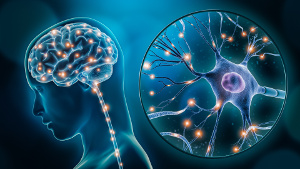 Neurologists agree that the brain’s neurons constantly change in relation to stimuli from the inside and outside environment. That is how we learn new skills and develop our memory. The brain’s ability to adapt and change is called neuroplasticity and doctors have suspected for a long time that it takes place in the synapses. A team of scientists from the University of Freiburg in Germany has discovered that a vitamin A-like compound affects the neurons and their ability to adapt to structure and function. The scientists hope that their discovery can contribute to the development of new therapies for treating brain disorders. Earlier studies have shown that omega-3 fatty acids, vitamin D, and lifestyle in general also affect the brain’s neuroplasticity and development.
Neurologists agree that the brain’s neurons constantly change in relation to stimuli from the inside and outside environment. That is how we learn new skills and develop our memory. The brain’s ability to adapt and change is called neuroplasticity and doctors have suspected for a long time that it takes place in the synapses. A team of scientists from the University of Freiburg in Germany has discovered that a vitamin A-like compound affects the neurons and their ability to adapt to structure and function. The scientists hope that their discovery can contribute to the development of new therapies for treating brain disorders. Earlier studies have shown that omega-3 fatty acids, vitamin D, and lifestyle in general also affect the brain’s neuroplasticity and development. Lack of
Lack of  The mitochondria are the energy-producing powerplants in cells that have numerous essential functions. They need plenty of
The mitochondria are the energy-producing powerplants in cells that have numerous essential functions. They need plenty of  A team of researchers from McGill University, Canada, has found a link between decreased vitamin D status and increased risk of multiple sclerosis (MS). In their study, which is published in PLOS Medicine, they compared data from thousands of participants with and without MS. As part of their research they looked at how genetic factors affected vitamin D levels in the participants. The researchers found that those people who were genetically prone to low vitamin D status were at least twice as likely to have MS. To explain their observations in more simple terms, when you increase a person's circulating levels of 25OHD (biologically active vitamin D) by 1.5-fold, it decreases their risk of developing MS by 50%.
A team of researchers from McGill University, Canada, has found a link between decreased vitamin D status and increased risk of multiple sclerosis (MS). In their study, which is published in PLOS Medicine, they compared data from thousands of participants with and without MS. As part of their research they looked at how genetic factors affected vitamin D levels in the participants. The researchers found that those people who were genetically prone to low vitamin D status were at least twice as likely to have MS. To explain their observations in more simple terms, when you increase a person's circulating levels of 25OHD (biologically active vitamin D) by 1.5-fold, it decreases their risk of developing MS by 50%. There is a link between the widespread problems with
There is a link between the widespread problems with 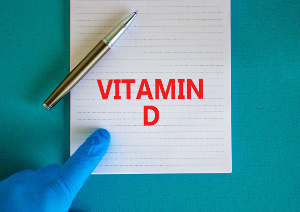
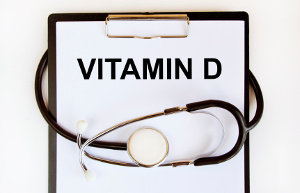 Danish scientists from Aalborg University have published a study of mice in which they demonstrate that
Danish scientists from Aalborg University have published a study of mice in which they demonstrate that  Women who get sufficient vitamin D is approximately one-third less likely to develop fibroids in the wall of the uterus, according to a U.S. study published in the journal Epidemiology. This study is the first to relate uterine fibroids to the level of vitamin D.
Women who get sufficient vitamin D is approximately one-third less likely to develop fibroids in the wall of the uterus, according to a U.S. study published in the journal Epidemiology. This study is the first to relate uterine fibroids to the level of vitamin D.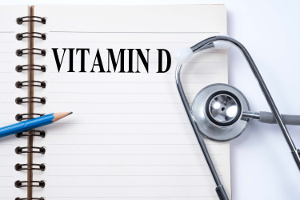



 During a woman’s pregnancy,
During a woman’s pregnancy,  Atopic dermatitis (eczema) is a widespread problem and a huge burden to both the child and its parents. According to a new study that is published in British Journal of Dermatology, high-dosed
Atopic dermatitis (eczema) is a widespread problem and a huge burden to both the child and its parents. According to a new study that is published in British Journal of Dermatology, high-dosed  According to a study that was presented to a group of endocrinologists at an Edinburgh conference, supplements of
According to a study that was presented to a group of endocrinologists at an Edinburgh conference, supplements of  Having high blood levels of
Having high blood levels of  Many people suffer from chronic inflammation, which sets the stage for a host of diseases such as asthma, type 2 diabetes, atherosclerosis, depression, cancer, rheumatoid arthritis, and other autoimmune diseases. The presence of chronic inflammation may also make infections such as coronavirus and influenza potentially life-threatening by derailing the immune defense. According to a new study from the University of South Australia that is published in International Journal of Epidemiology, it appears that
Many people suffer from chronic inflammation, which sets the stage for a host of diseases such as asthma, type 2 diabetes, atherosclerosis, depression, cancer, rheumatoid arthritis, and other autoimmune diseases. The presence of chronic inflammation may also make infections such as coronavirus and influenza potentially life-threatening by derailing the immune defense. According to a new study from the University of South Australia that is published in International Journal of Epidemiology, it appears that 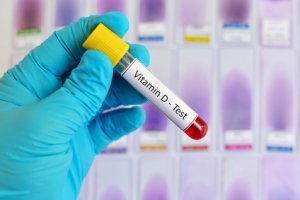 This time of year, many people suffer from asthma, aching joints, or an exacerbation of other chronic diseases that involve inflammation. This is often because they lack
This time of year, many people suffer from asthma, aching joints, or an exacerbation of other chronic diseases that involve inflammation. This is often because they lack Lack of sleep is common among children and adults. It increases the risk of overweight, diabetes, cardiovascular diseases, blood clots, depression, infections, and a number of other diseases. Lack of
Lack of sleep is common among children and adults. It increases the risk of overweight, diabetes, cardiovascular diseases, blood clots, depression, infections, and a number of other diseases. Lack of  Sleep removes toxic waste products from the brain and lack of deep sleep increases the risk of poor well-being, depression, Alzheimer’s disease, cancer, and a host of other diseases. According to the American sleep researcher, Dr. Stasha Gominak, poor sleep quality is often linked to
Sleep removes toxic waste products from the brain and lack of deep sleep increases the risk of poor well-being, depression, Alzheimer’s disease, cancer, and a host of other diseases. According to the American sleep researcher, Dr. Stasha Gominak, poor sleep quality is often linked to 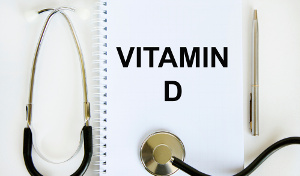 Millions of people worldwide drink arsenic-polluted water regularly. Arsenic is a toxin that is known to cause different types of cancer, including skin cancer. According to a new study published in American Journal of Cancer Research, it looks as if the active form of vitamin D, calcitriol, can prevent the onset of arsenic-induced skin cancer in a special type of skin cells. Calcitriol also appears to be able to prevent other types of cancer caused by arsenic.
Millions of people worldwide drink arsenic-polluted water regularly. Arsenic is a toxin that is known to cause different types of cancer, including skin cancer. According to a new study published in American Journal of Cancer Research, it looks as if the active form of vitamin D, calcitriol, can prevent the onset of arsenic-induced skin cancer in a special type of skin cells. Calcitriol also appears to be able to prevent other types of cancer caused by arsenic.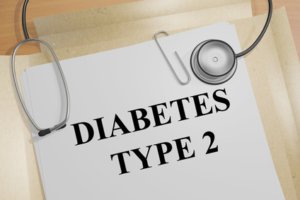 According to an American study, individuals with higher blood levels of
According to an American study, individuals with higher blood levels of  Melanoma can be very dangerous if it is not treated in time, but a study from the University of Leeds in England shows that
Melanoma can be very dangerous if it is not treated in time, but a study from the University of Leeds in England shows that 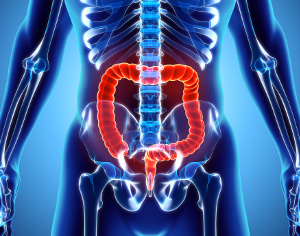 Colorectal cancer is one of the most common cancer forms in Denmark, which is why prevention is so important. According to a new American study that is published in Gastroenterology, increased intake of
Colorectal cancer is one of the most common cancer forms in Denmark, which is why prevention is so important. According to a new American study that is published in Gastroenterology, increased intake of  Supplementing with high doses of
Supplementing with high doses of 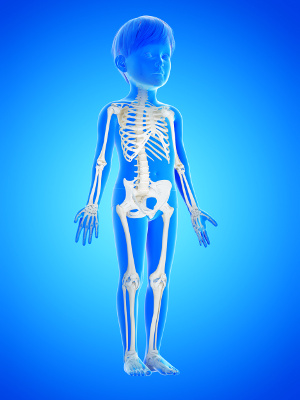
 Photodynamic therapy is a kind of light therapy that is used to treat skin cancer, psoriasis, and other skin diseases. According to a review article published in Nutrients,
Photodynamic therapy is a kind of light therapy that is used to treat skin cancer, psoriasis, and other skin diseases. According to a review article published in Nutrients,  Lack of
Lack of  There is an increasing amount of science that links lack of
There is an increasing amount of science that links lack of 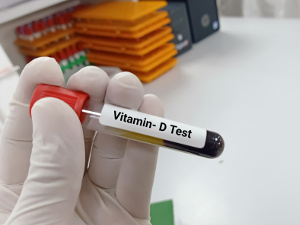 Cancer patients often have overwhelming pain that turns up as their disease progresses. The whole purpose with palliative care is to relieve the pain, and opioids such as morphine are often used for this purpose. However, according to a Swedish study published in the science journal Cancer, more and more terminal cancer patients who are given high-dosed supplements of
Cancer patients often have overwhelming pain that turns up as their disease progresses. The whole purpose with palliative care is to relieve the pain, and opioids such as morphine are often used for this purpose. However, according to a Swedish study published in the science journal Cancer, more and more terminal cancer patients who are given high-dosed supplements of  According to a Cochrane review, supplementing asthma medication with
According to a Cochrane review, supplementing asthma medication with 
 The number of older people is increasing rapidly, which means more and more people suffer from different types of dementia.
The number of older people is increasing rapidly, which means more and more people suffer from different types of dementia.  Lack of
Lack of  It is a known fact that too much sun gives you wrinkles and increases your risk of skin cancer. However, fearmongering and new lifestyle habits have resulted in widespread
It is a known fact that too much sun gives you wrinkles and increases your risk of skin cancer. However, fearmongering and new lifestyle habits have resulted in widespread  Sclerosis, rheumatoid arthritis, certain gastrointestinal infections, and a host of other diseases are so-called autoimmune diseases that occur as a result of the immune defense overreacting and attacking the body’s own tissues. Scientists from the University of Edinburgh in Scotland have now mapped out exactly how
Sclerosis, rheumatoid arthritis, certain gastrointestinal infections, and a host of other diseases are so-called autoimmune diseases that occur as a result of the immune defense overreacting and attacking the body’s own tissues. Scientists from the University of Edinburgh in Scotland have now mapped out exactly how  Many of us contract respiratory infections during the winter period. In many cases, the underlying cause is a deficiency of
Many of us contract respiratory infections during the winter period. In many cases, the underlying cause is a deficiency of 

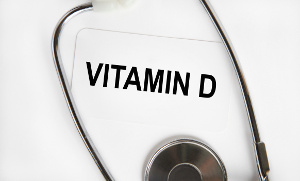
 Lack of
Lack of  According to WHO, chronic inflammation is the leading cause of death worldwide. Although it is not something that can be felt as such, chronic inflammation sets the stage for a host of different diseases. In a new review article that is published in StatPearls, the authors look closer at why chronic inflammation is so dangerous and how a healthier lifestyle with vitamin D, selenium, magnesium, zinc, and fish oil can help fight the inflammation and prevent the many different diseases and early death that follow in its wake.
According to WHO, chronic inflammation is the leading cause of death worldwide. Although it is not something that can be felt as such, chronic inflammation sets the stage for a host of different diseases. In a new review article that is published in StatPearls, the authors look closer at why chronic inflammation is so dangerous and how a healthier lifestyle with vitamin D, selenium, magnesium, zinc, and fish oil can help fight the inflammation and prevent the many different diseases and early death that follow in its wake. The summer sun is our primary source of
The summer sun is our primary source of 
 Zinc is of vital importance to the immune defense, our mental balance, fertility, skin, hair, sense of taste, and numerous other functions. According to a new study that is published in Current Research in Physiology,
Zinc is of vital importance to the immune defense, our mental balance, fertility, skin, hair, sense of taste, and numerous other functions. According to a new study that is published in Current Research in Physiology,  "After about one week of taking the Q10 supplement I could feel a huge difference," says 23-year old Alan Piccini, who has been suffering from extreme fatigue and muscle aches ever since he was a child.
"After about one week of taking the Q10 supplement I could feel a huge difference," says 23-year old Alan Piccini, who has been suffering from extreme fatigue and muscle aches ever since he was a child. “Taking capsules with co-enzyme Q10 has freed me of the severe side effects of my cholesterol lowering medicine,” Mrs Franken explains.
“Taking capsules with co-enzyme Q10 has freed me of the severe side effects of my cholesterol lowering medicine,” Mrs Franken explains.